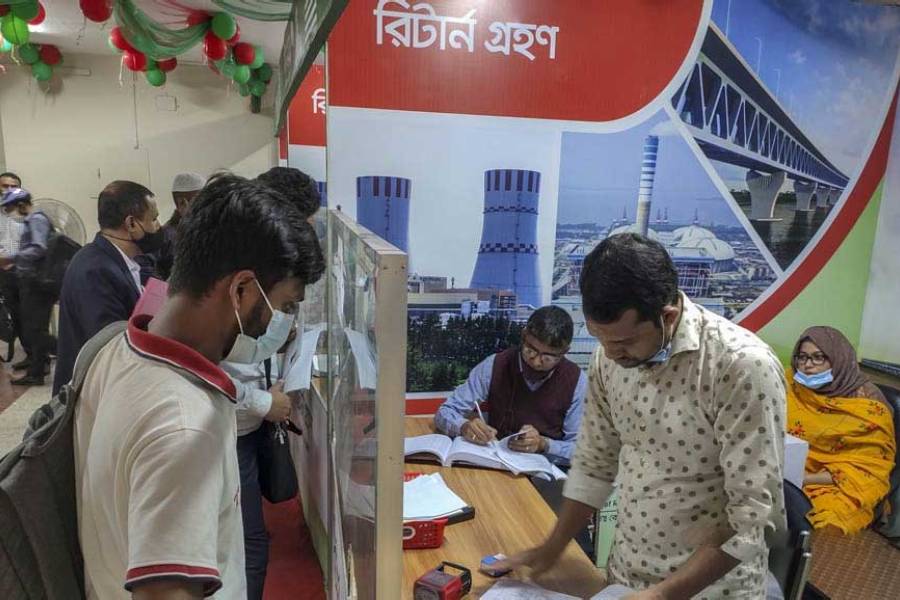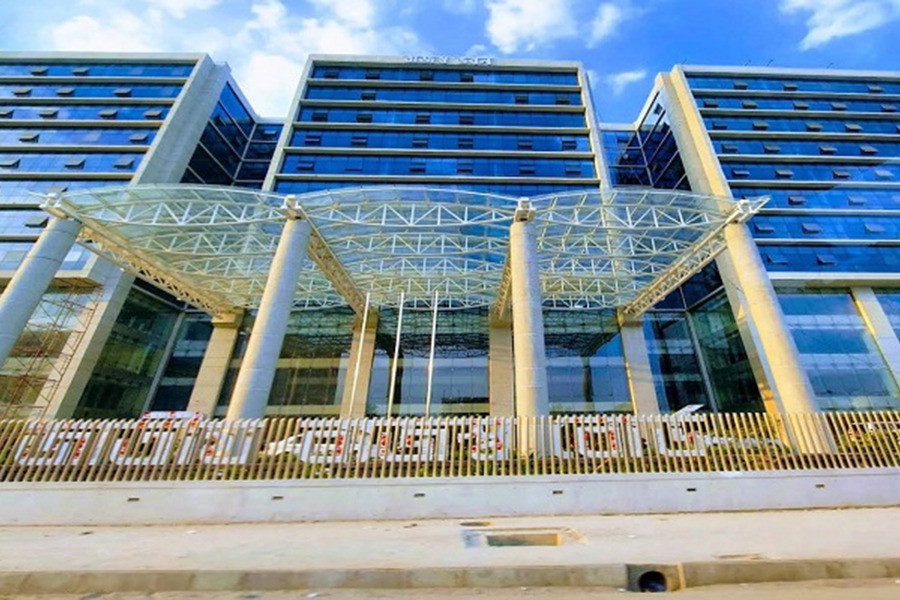Saif
Senior Member
- Joined
- Jan 24, 2024
- Messages
- 17,262
- Likes
- 8,334
- Nation

- Residence

- Axis Group


ACC Chairman: Padma Bridge graft case was shelved despite ample evidence
Anti-Corruption Commission (ACC) Chairman Mohammad Moinuddin Abdullah on Tuesday said that despite having substantial evidence of irregularities, the much-discussed Padma Multipurpose Bridge graft case was prematurely closed, and the accused were exempted from trial. He made the remarks while talk
ACC Chairman: Padma Bridge graft case was shelved despite ample evidence
UNB
Published :
Jul 01, 2025 21:46
Updated :
Jul 01, 2025 21:46
Anti-Corruption Commission (ACC) Chairman Mohammad Moinuddin Abdullah on Tuesday said that despite having substantial evidence of irregularities, the much-discussed Padma Multipurpose Bridge graft case was prematurely closed, and the accused were exempted from trial.
He made the remarks while talking to reporters at the ACC headquarters in Dhaka’s Segunbagicha this afternoon.
“The case’s initial investigation report was flawed and incomplete. We have decided to revive it with a comprehensive and evidence-based submission,” said the ACC chief.
Referring to irregularities in the procurement process of consultants for the Padma Bridge project, Moinuddin Abdullah noted that although there were clear grounds for legal action, the previous commission submitted an FRT (Final Report True), effectively ending the case.
“When the current commission took over in December, we reassessed the matter and felt that the case was shelved forcefully. It needs to be revived, and we’ve already begun a fresh investigation,” he added.
Citing specific violations of public procurement rules, he said the evaluation committee for the project was changed several times with ill intent. “Such changes indicate malafide intentions. Items that were supposed to be reusable were shown to be procured multiple times, which is financially unjustifiable,” he noted.
The ACC chief pointed out several breaches of the Public Procurement Act (PPA) and Public Procurement Rules (PPR), saying CVs of consultants were not properly evaluated and committee meetings required by law were either skipped or inadequately conducted.
“Based on these factors, we believe the earlier report was fundamentally defective, whether due to pressure or negligence. This time, our investigating officer will submit a complete and independent report, and the case will be reopened,” he affirmed.
In 2012, the World Bank suspended its USD 1.2 billion loan commitment for the Padma Bridge project, citing concerns over corruption. On December 17 of that year, the ACC filed a case with Banani Police Station against seven individuals.
The prime accused was then Bridges Division Secretary Mosharraf Hossain Bhuiyan, who was arrested and suspended from his position. He was later released on bail and reinstated.
UNB
Published :
Jul 01, 2025 21:46
Updated :
Jul 01, 2025 21:46
Anti-Corruption Commission (ACC) Chairman Mohammad Moinuddin Abdullah on Tuesday said that despite having substantial evidence of irregularities, the much-discussed Padma Multipurpose Bridge graft case was prematurely closed, and the accused were exempted from trial.
He made the remarks while talking to reporters at the ACC headquarters in Dhaka’s Segunbagicha this afternoon.
“The case’s initial investigation report was flawed and incomplete. We have decided to revive it with a comprehensive and evidence-based submission,” said the ACC chief.
Referring to irregularities in the procurement process of consultants for the Padma Bridge project, Moinuddin Abdullah noted that although there were clear grounds for legal action, the previous commission submitted an FRT (Final Report True), effectively ending the case.
“When the current commission took over in December, we reassessed the matter and felt that the case was shelved forcefully. It needs to be revived, and we’ve already begun a fresh investigation,” he added.
Citing specific violations of public procurement rules, he said the evaluation committee for the project was changed several times with ill intent. “Such changes indicate malafide intentions. Items that were supposed to be reusable were shown to be procured multiple times, which is financially unjustifiable,” he noted.
The ACC chief pointed out several breaches of the Public Procurement Act (PPA) and Public Procurement Rules (PPR), saying CVs of consultants were not properly evaluated and committee meetings required by law were either skipped or inadequately conducted.
“Based on these factors, we believe the earlier report was fundamentally defective, whether due to pressure or negligence. This time, our investigating officer will submit a complete and independent report, and the case will be reopened,” he affirmed.
In 2012, the World Bank suspended its USD 1.2 billion loan commitment for the Padma Bridge project, citing concerns over corruption. On December 17 of that year, the ACC filed a case with Banani Police Station against seven individuals.
The prime accused was then Bridges Division Secretary Mosharraf Hossain Bhuiyan, who was arrested and suspended from his position. He was later released on bail and reinstated.









































